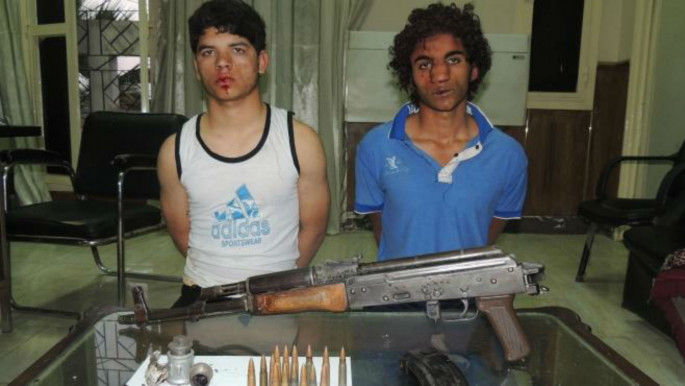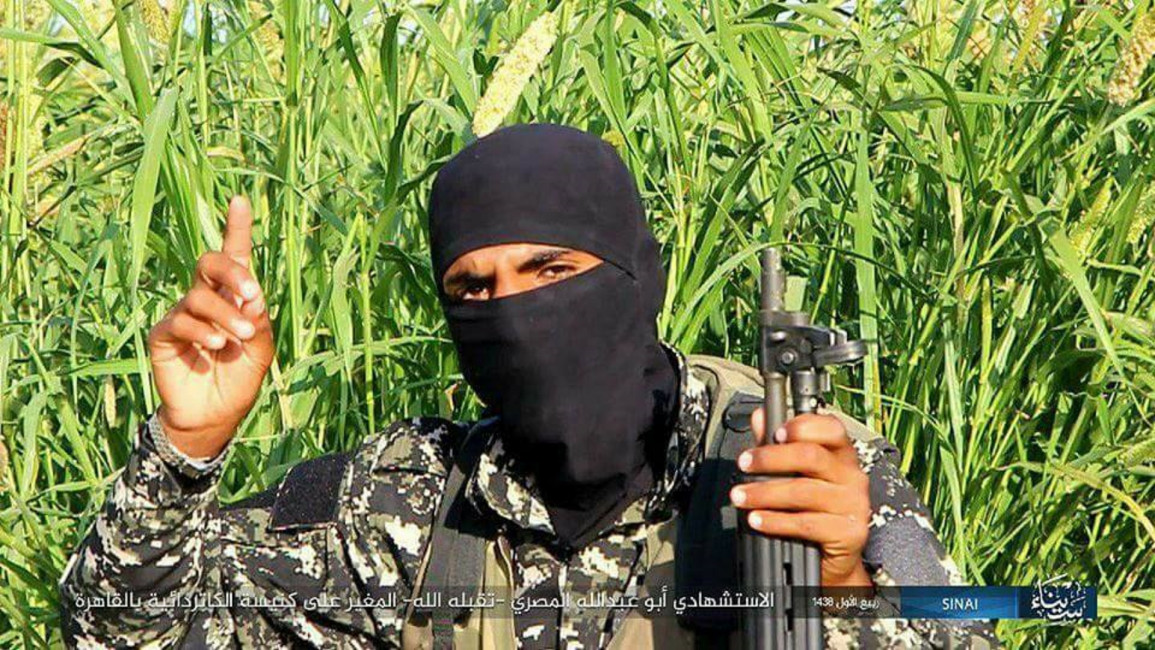IS releases image of alleged Cairo church suicide bomber
The Egyptian branch of the extremist group, Wilayat Sinai, released the image on affiliated social media pages of the balaclava-wearing culprit, obscuring the majority of his face.
The extremists said the culprit of the deadly attack went by the nom de guerre Abu Abdullah al-Masry.
The group claimed responsibility on Tuesday for the bomb attack - the first claim for one of the worst attacks on the Coptic Christian community in recent memory.
President Abdel Fattah al-Sisi named the suicide bomber as Mahmoud Shafik, 22, during a funeral for the victims.
Shafik had been arrested and beaten by police two years ago after allegedly taking part in an Islamist demonstration.
 |
|
| A teenage Shafik (r) was photographed by police with a bleeding nose and bruised face [Twitter] |
Mahmoud Hassan, one of Shafik's lawyers, said his client, who was 16 at the time of his arrest, was tortured until he confessed to the possession of weapons and explosions.
After his arrest, Shafik spent nearly two months in detention before being released on bail.
A court later convicted him in absentia, according to the lawyer. Traumatised by the torture, he told his lawyer not to appeal, fearing he would be abused again if detained.
Hassan said the student from the oasis province of Fayoum appears to have been radicalised by his experience in detention.
The Egyptian government has accused fugitive Muslim Brotherhood leaders who fled to Qatar of training and financing those responsible for the attack.
The blacklisted Islamist movement has strongly condemned the bombing in an online statement, saying: "shedding the blood of all Egyptians is prohibited; Christian and Muslim."
Qatar has also denied any link with a Cairo church bombing and accused critics of trying to sully the country's name.



